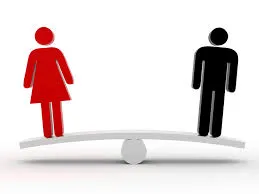Gender inequality is the idea and situation that women and men are not equal. Gender inequality refers to unequal treatment or perceptions of individuals wholly or partly due to their gender. It arises from differences in gender roles.
Gender inequality in Nigeria is influenced by different cultures and beliefs. In most parts of Nigeria, women are considered subordinate to their male counterparts, especially in Northern Nigeria.It is generally believed that women are best suited as home keepers. Discriminated against at every level, women and girls traditionally have limited access to education, ownership of land and assets in Nigeria. And they are denied equal treatment in inheritance rights, human resources development and sustainable economic growth. It is therefore worrisome that at a time they are seeking equal treatment and participation in issues that concern them and their families, some respected traditional rulers who ordinarily should know better are making utterances that are entirely unhelpful.
In Nigeria, gender issues revolve around societal beliefs and preferences, religious and economic factors. It encourages stereotypes with individual family members or organisation toeing assigned paths without giving a thought to such things as abilities, competence, and experience.
Gender inequality in education is not about political propaganda. It is not about the number of women in politics or governance, and not about separate schools for both genders. It is also not about the levels of educational achievement of boys and girls, nor the female/male ratio of the population.
Now It is not about which of the genders can contribute more to benefit the family. It is about equal access to education and retention of these students.
